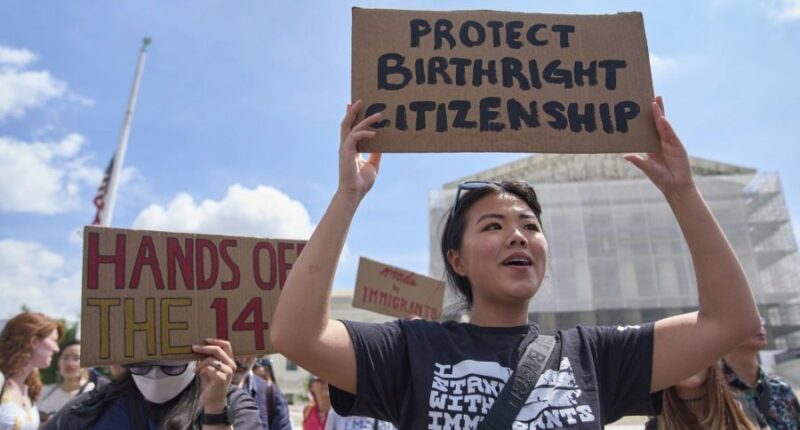Share this @internewscast.com

(The Hill) — Late Thursday, a federal judge in Maryland halted nationwide measures imposed by President Donald Trump concerning birthright citizenship. This marks the fourth similar ruling after the Supreme Court’s decision to reconsider universal injunctions.
Previously, U.S. District Judge Deborah Boardman indicated her intent to block these restrictions nationwide. However, she lacked jurisdiction earlier since the case was under an appeals court’s purview.
Last week, the appeals court sent the case back to Boardman so she could issue the ruling.
This development follows the Supreme Court’s 6-3 ideological ruling that limits judges’ power to issue universal injunctions. Nonetheless, the court still permits nationwide blocks when necessary to ensure “complete relief” for plaintiffs or during nationwide class actions certified by judges.
Boardman insisted she was not “resurrecting” a universal injunction, and Thursday’s ruling “comports with old and recent Supreme Court precedent.”
Judge Boardman stated, “The Court believes that providing full relief to the certified class necessitates stopping the enforcement of the Executive Order for all class members.” She emphasized that the relief must encompass every child in the U.S. affected by the Executive Order.
She is an appointee of former President Joe Biden.
On his first day in office, Trump issued an executive order restricting birthright citizenship for children born in the U.S. if neither parent holds permanent legal status. Courts examining its constitutional validity consistently found it conflicts with the 14th Amendment’s Citizenship Clause.
Boardman handles a lawsuit initiated by two immigration service groups—CASA and the Asylum Seeker Advocacy Project—along with eight women who are either pregnant or recently gave birth. The plaintiffs argue that partial injunctions, limited by area or group, are impractical.
The latest ruling marks the fourth time that a court has blocked Trump’s executive order nationwide following the Supreme Court’s decision.
An appeals court panel did so last month, as did two other federal district judges in New Hampshire and Massachusetts.












